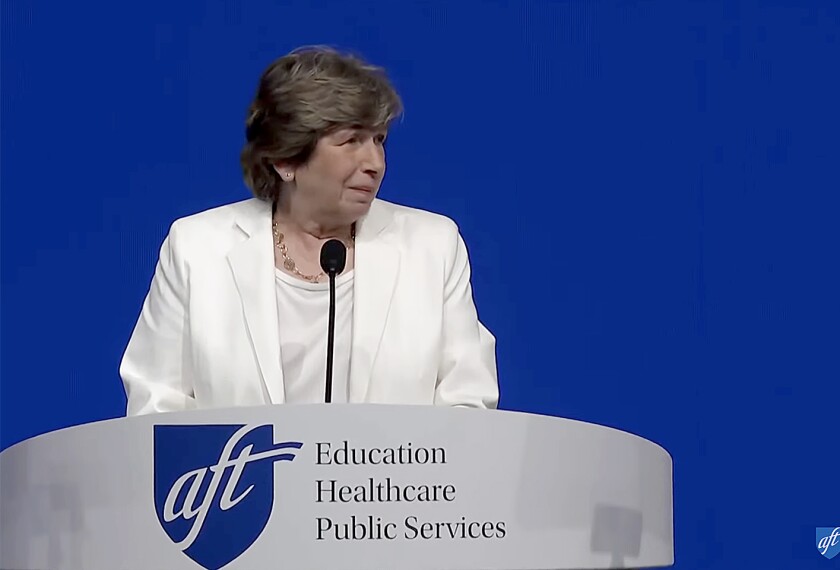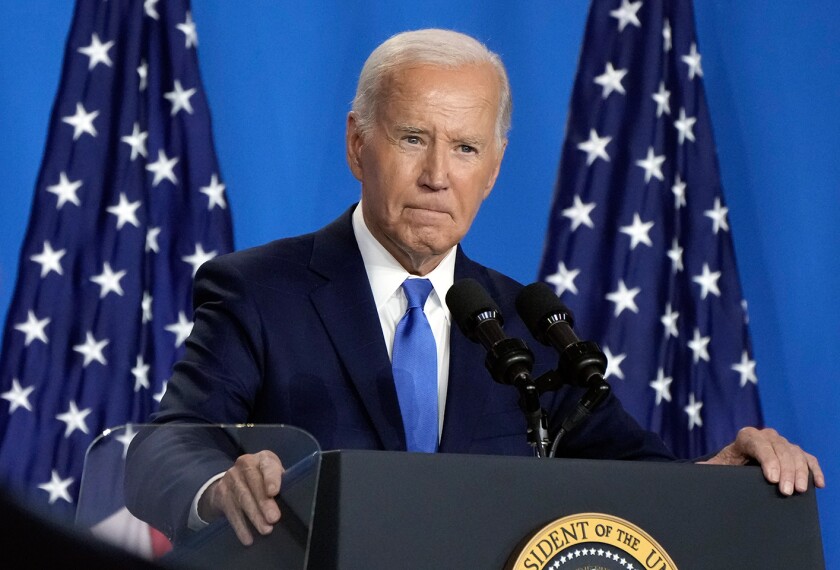Following a spirited debate about federal spending priorities in education, the House education committee approved a bill last week that would authorize new money to help districts improve school facilities, including making them more environmentally friendly.
The measure, which was approved April 30 on a largely party-line vote of 28-19, would authorize $6.4 billion in grants to school districts in fiscal 2009. If enacted, it would pave the way for the first federal investment in upgrading school buildings since 2001, when Congress approved $1.2 billion for educational facilities.
But Rep. Howard P. “Buck” McKeon of California, the top Republican on the House Education and Labor Committee, argued that the measure would divert money from other priorities, such as spending for students in special education under the Individuals with Disabilities Education Act. And he said labor and environmental requirements in the bill would drive up school construction costs.
“In a time of limited federal resources, it’s fair to ask why we would drain funds from other critical education priorities in order to fund an inefficient construction mandate,” Rep. McKeon said.
The prospects for securing new money for school construction in fiscal year 2009 are tenuous, Rep. George Miller, D-Calif., the panel’s chairman, acknowledged in an interview after the measure was approved. Last year, President Bush vetoed a fiscal 2008 appropriations bill that sought to increase education spending by 5.6 percent before a smaller increase was eventually approved. And he has proposed level funding for the Department of Education for fiscal 2009, which begins Oct. 1.
But Rep. Miller said he’d like to pass the facilities measure this year, if only to lay the groundwork for future appropriations.
“This bill is looking forward,” he said.
‘Green’ Standards
The measure would authorize the distribution of school construction grants through the same formula used to allocate aid under Title I. If the authorized amount were appropriated, each eligible district would receive a minimum grant of $5,000.
The money could be used for a variety of modernization, renovation, and repair projects.
Also, districts could use the money to help make sure schools were accessible to students with disabilities, in compliance with the Americans with Disabilities Act. But such modifications could not be the primary use of the grants.
Districts that received grants under the legislation would have to supplement the federal money with local funds. They would have to compile annual reports explaining how the aid was being used.
Under a House bill that would authorize grants to finance school facilities, school districts could use the money to:
• Repair or replace roofs, electrical wiring, plumbing, sewage systems, or windows and doors.
• Bring schools into compliance with fire and safety codes.
• Remove asbestos.
• Upgrade or install education technology.
• Make schools energy efficient
SOURCE: House Education and Labor Committee
Projects financed under the bill would also have to meet certain “green building” standards. Schools could waive those requirements under some circumstances. But the measure would ensure that a greater percentage of funds was used for projects that adhered to environmental standards each year. By 2013, districts would have to use at least 90 percent of the aid for such projects.
The bill would authorize separate funding—$500 million over five years—for public schools that were damaged by Hurricanes Katrina and Rita in 2005. That money could be used for the same purposes as the grants, plus for new school construction.
Prevailing Wages
Rep. Michael N. Castle, R-Del., introduced an amendment that would require Congress to significantly increase funding for the IDEA and Title I, which provides educational help for disadvantaged students, before financing school construction. He said he is concerned that once federal lawmakers get involved in helping to pay for school construction, they could be pressured to “spend more and more and more” on the program each year. Congress has already fallen short on its commitments to pay for other programs that have a greater impact on student learning, he said.
But Democrats argued that school facilities can have an impact on student achievement and faculty retention.
“I think [the amendment] sets up a false choice,” said Rep. Timothy H.Bishop, D-N.Y. “We know there’s a correlation between teachers leaving the profession and working in facilities that are not properly constructed, not properly maintained.”
The amendment was rejected on a party-line vote, 24-20.
Rep. McKeon also offered an amendment that would have permitted districts receiving the fund to suspend requirements under the Davis-Bacon Act, the Depression-era law that requires that federally financed construction projects pay workers so-called prevailing wages. Those wages are typically the union wages paid in a given area.
Rep. Dale E. Kildee of Michigan, a Democrat who has served in Congress for more than three decades, said that the Davis-Bacon law has been a perennial target for Republicans, and that “the debates are so predictable.”
Rep. McKeon’s amendment was defeated on a roll-call vote, 27-16.





